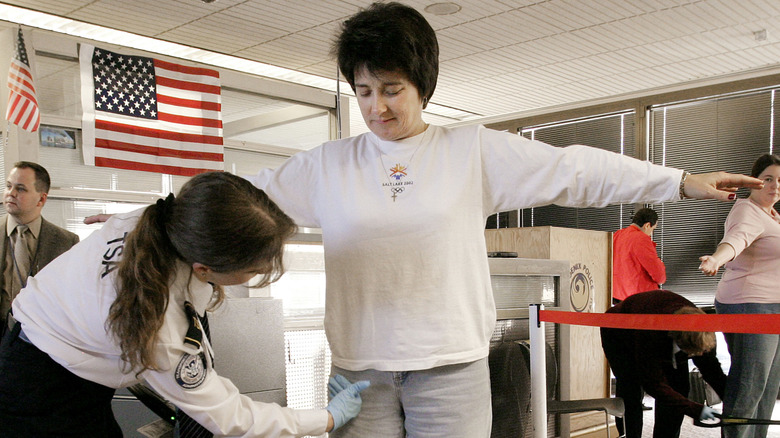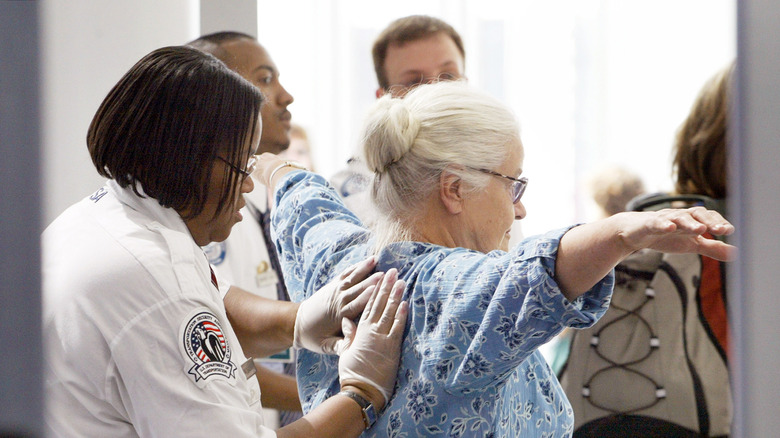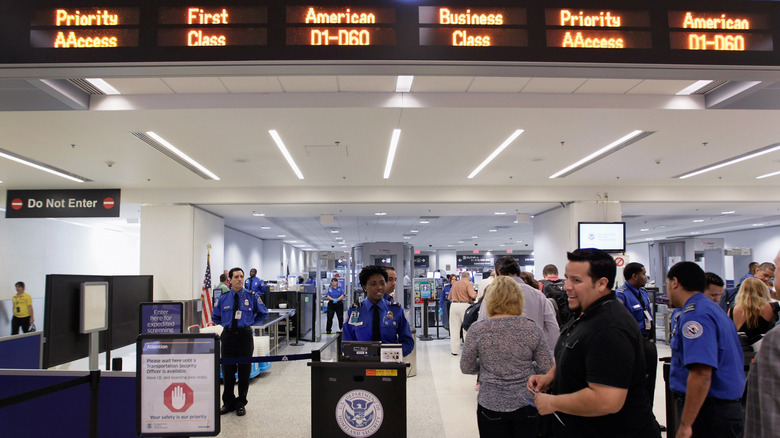The Unexpected Item In Your Body That Could Trigger TSA Issues
One of the most frustrating parts of traveling is the process of airport security screenings. Having to wait in long lines, take your shoes off, remove electronic devices, and make sure all your liquids fit in one bag can be irritating and frustrating — especially if you have a long travel day ahead. Imagine it's finally your turn and the alarm goes off, a dreaded signal things are going to take even longer as the TSA agent waves you over.
You'll be surprised to know that there are objects in your body that could be the reason you're setting off the alarm. These items include medical devices, implants, surgical hardware, or metal plates. So before you panic when the scanner starts beeping, know which devices can set off the alarm, how to prepare in advance, and what to do to make sure you are safe. After all, your safety is more important than getting through a line quickly.
Why TSA scanners detect internal medical devices
Using advanced imaging technology, TSA scanners detect any objects on or under the skin, and anything dense, irregular, or out of the ordinary can set off the alarm for extra security measures. If an object is detected, a pat-down of the area is required to ensure there is no threat. Unfortunately, TSA scanners cannot distinguish between medical devices or any other harmful objects which means that anything irregular detected on or in your body could trigger the alarm.
Common medical devices that set off TSA scanners include metal implants or surgical hardware such as hip replacements, knee implants, or any metal plates. Unfortunately, prosthetics will also trigger the alarms as their density can sometimes confuse the scanners, leading to additional screening. If you've got a pacemaker or internal defibrillator, make sure you inform the TSA agent, as they can perform a pat-down or direct you through the Advanced Imaging Technology (full-body scanner) instead of the metal detectors. Magnetic fields like those from a metal detector could interfere with a pacemaker, and while this is unlikely to happen at the airport, it's better to play it safe.
Tips to avoid TSA delays caused by medical devices
It's helpful to bring medical documents with you about any implants or internal devices while traveling, like a Medical Device ID Card. It is highly recommended to notify a TSA officer in advance, so they can perform a manual screening or full-body scan and keep things moving along without the alarm sounding. Arriving early, being proactive, and advocating for yourself or your travel companions are some of the best ways to avoid getting flagged by TSA.
One of the best ways to make screening easier is by using TSA pre-check. This expedites the screening process, eliminates unnecessary procedures such as removing shoes and laptops or liquids, and allows you to get the assistance you need when notifying the airline in advance, helping you get through airport security faster. At the end of the day, when it comes to airport security it's best to be patient and keep in mind that TSA officers are only trying to do their job to keep you and fellow air travelers safe.


